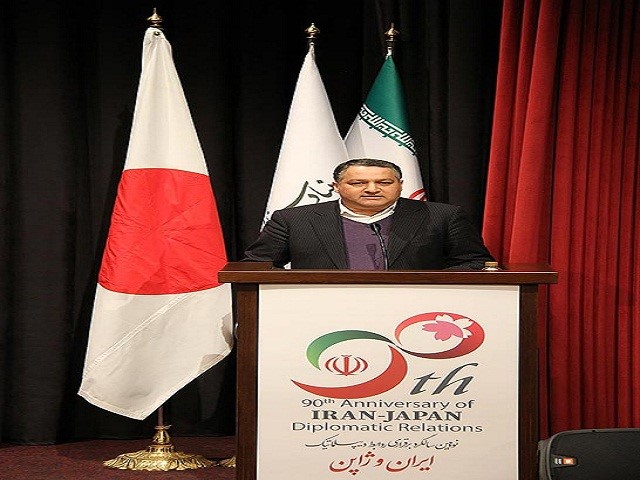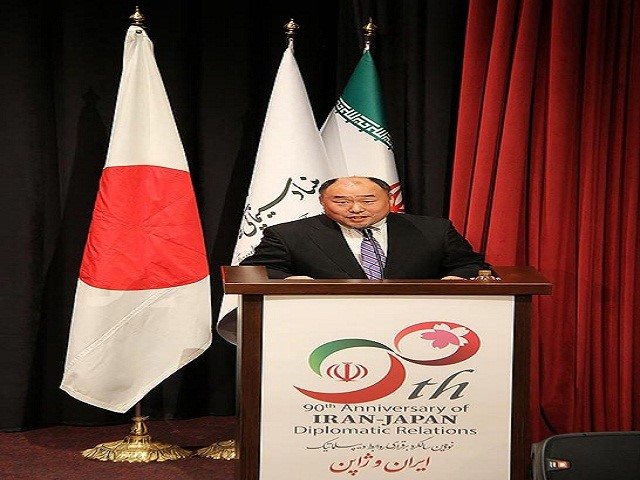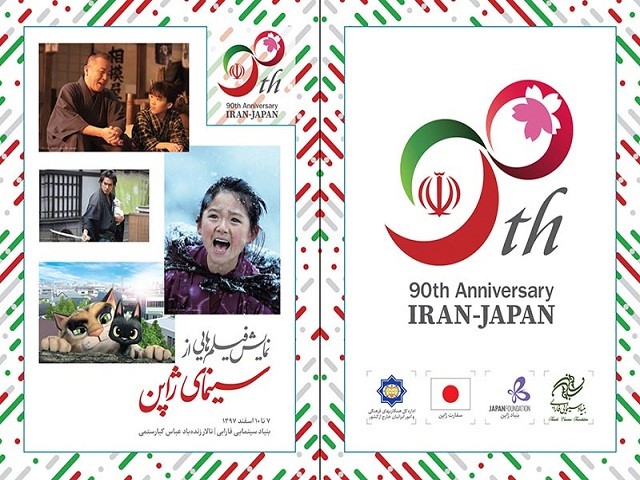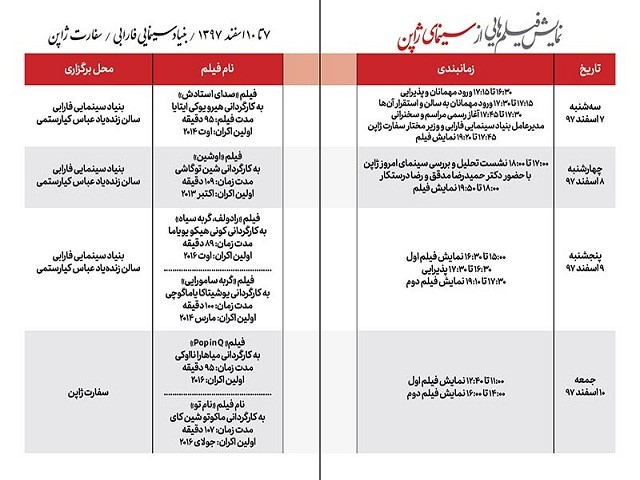Mr. Tabesh: Referring to Oriental culture and civilization makes understanding human existence and history, possible.
Cinemapress: Director of the Farabi cinema organization at the ceremony showing the works of Japanese cinema in Abbas Kiarostami hall, by referring to the origin of Oriental culture, stated: referring to Oriental culture and civilization makes understanding human existence and history, possible.
According to CinemaPress report: Opening ceremony showing Japan’s cinema works, on the occasion of the 90th anniversary of the diplomatic relations between Japan and the Islamic Republic of Iran, in Abbas Kiarostami hall of Farabi cinema organization was held on Tuesday evening.
At the beginning of the ceremony “Alireza Tabesh”, Director of the Farabi cinema organization addressed to the minister of the embassy of Japan in Iran, artists and guests of the ceremony, stated:
I am celebrating your presence at Farabi cinema organization on the occasion of Japan film screening coincides with the 90th anniversary of the diplomatic relations between Japan and the Islamic Republic of Iran.

He noted: Although the official political relations between Iran and Japan were established by the signing of the Treaty of Amity in 1308, the bond of friendship and commercial and cultural relations goes back to many years; this link has its impact on both cultures and civilizations.
He also stated: Land of the Sun (Nihoon) is the birthplace of light and sun; The East which is cognate with “Origin and source”, Correctly reminded a delicate tip: If one wants to discover and reach the source and origin (human civilization), must go to the east.
Tabesh continued: Referring to Oriental culture and civilization makes understanding human existence and history, possible. Without the knowledge of the “life’s levant”, the human’s existential coordinates are not justified and can’t be understood. Recognizing human faces is understood by the true understanding of the East and, it is then possible to go through the “intellect’s West”.
He stated: A great man has said “Human is junction of life’s levant and intellect’s West”. Iran is geographically and historically and culturally in the middle of east and west; the Role of Iranian-Islamic culture and civilization “interlacing”. A role that not only includes cultural aspects, which include political and economic aspects.
Director of the Farabi cinema organization noted: Iran is the main gateway to the East and West and direct cultural dialogue is realized in art. Art of the picture by displaying different aspects of life and traditions of each nation, will make the audience more familiar with the culture of that country.
He made a sonnen of Hafez: “Confidants lovers of the chamber of affection ,are we grief , suffer not. To the kind friend, mention of the Friend the Beloved make”.
Then Tabesh by referring to the display of a number of works of Japanese cinema in Farabi cinema organization, said: displaying Japan today’s cinematic work, is invitation to hear the sound and see the friends so I invite you to see this works.

Familiarity with the lives of the Japanese people
“Toro Morikawa”, the minister of the embassy of Japan in Iran, at the beginning of the ceremony of Japan film screening coincides with the 90th anniversary of the diplomatic relations between Japan and the Islamic Republic of Iran, stated: Welcome to the opening of the Japanese film show. Despite the fact that relations between the two countries exist, the Japanese embassy has put forward a number of approaches in order to further the exchange of people between the two countries.
He continued: what the Japanese embassy emphasizes is to get information about the lives of Japanese people by the Iranian people, especially the Iranian youth.
The minister of the embassy of Japan in Iran noted: watching cinematic and animated films can familiarize the audience with Japanese life and culture. By seeing the characters of the cinematic films can become more familiar with the Japanese people and their feelings.
Morikawa stated: today, the film “The Voice of His Master”, is displayed. The subject of this film is the traditional drama of Japan. The audience can see the Japanese mindset in life. The film Oschin will be screened on Wednesday, and the invitees will be able to watch the cinematic performance.
He said: 28 February, two films are broadcast on the theme of “cat”. In Japan, dogs and cats are two popular pets. The Japanese consider Persian cats the most beautiful cats.

The minister of the embassy of Japan in Iran added: Animation has many fans in Japan and around the world, and in the animation released on Thursday, we will see certain images of Tokyo.
Morikawa further thanks the Farabi cinema organization and it’s personels for the presentation of the works of Japanese cinema in the Abbas Kiarostami’s Hall and h oped the audience would enjoy watching the works of Japanese cinema.
On Wednesday, Oshkin’s film directed by Shin Togashi and Thursday’s “Black Cat Rudolph”, directed by Hayko Yoyama and “Samurai Cat” directed by Yoshita Yamaguchi, will be displayed in Abbas Kiarostami’s Hall.
Raed Faridzadeh, deputy director of international affairs of Farabi cinema organization, Habib Il Beigi deputy of Farabi cinema organization, Kamada, first secretary and head of the cultural section of the Japanese bmbassy in Iran, Kenta Bumah deputy of the cultural sector, Shimizu Megumi, cultural director of Japan embassy in Iran, Seyyed Ali Pakdaman, director general of state diplomacy, Mohammad Javad Shariati, director of religious, cultural, art and sport cooperation, Aida Panahandeh, Anahid Abad, Sirous Hassanpour and a group of artists attended the ceremony.

Films from Japan’s cinema from 26 to 28 February is displayed in Abbas Kiarostami’s Hall, with the collaboration of the Farabi cinema organization and the Japanese embassy.























